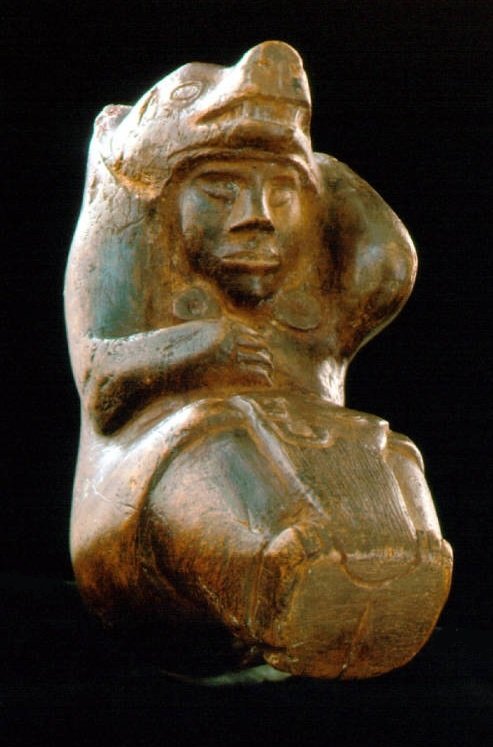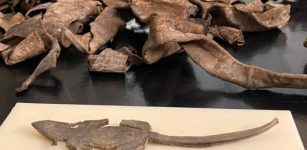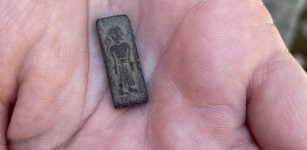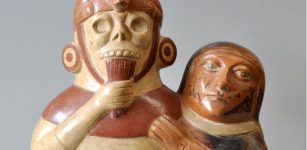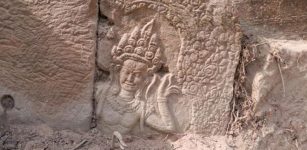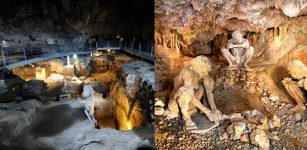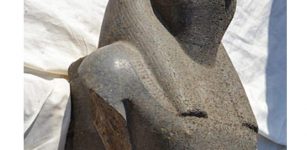Mystery Of The Shaman of Newark – A Remarkable Ancient Artifact Of An Unknown Creature
MessageToEagle.com – Who was this mysterious odd-looking ancient creature? Was he an ancestor, a god, an actor, a myth, a legend or a fantasy?
Whoever he was, he certainly does not resemble an ordinary human.
This enigmatic ancient figure was unearthed in February this year, while workers excavating a site for a fiber-optic box in the village of Newtown in Hamilton County uncovered a remarkable artifact associated with an ancient American Indian burial.
The circular ornament is called a gorget and is made from marine shell and engraved with an image of a fantastic creature that Bob Genheimer, the curator of archaeology for the Cincinnati Museum Center, has described as similar to a griffin.
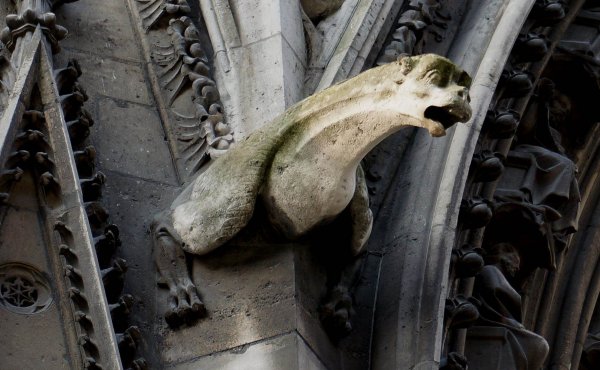
It has the head of a Carolina parakeet or turtle, the tail of a panther and wings.
Supernatural beings appear in the art of all cultures.
In fact, the oldest known figurative sculpture in the world is a 40,000-year-old mammoth ivory carving of what appears to be a human with a lion’s head. It was excavated from a cave in Germany.
A similar ancient figure was discovered back in 1881 by workers digging a foundation in Newark. It was a human/animal combination from the remnants of a 2,000-year-old mound.
The “Shaman of Newark” is a small stone sculpture of a human wearing a bear’s head and bear paws. This human-bear figure cradles a decapitated human head in its lap. Spanish archaeologists Eduardo Palacio-Perez and Aitor Ruiz Redondo argue in a recent issue of the journal Antiquity that all of our attempts to interpret what they refer to as the “imaginary creatures” depicted in ancient art are compromised by hidden biases and assumptions, including the idea that this imagery can be encompassed by the western concept of “art.”
According to the Columbus Dispatch scientists “note that in the early 20th century, anthropologists interpreted representations such as the lion man as “more or less realistic representations of masked dancers or sorcerers.” Now, however, anthropologists recognize that non-Western, indigenous societies believe that there is an inter-connectedness between humans and animals and that they “are capable of transformation and adopt different forms in different contexts.”
MessageToEagle.com

